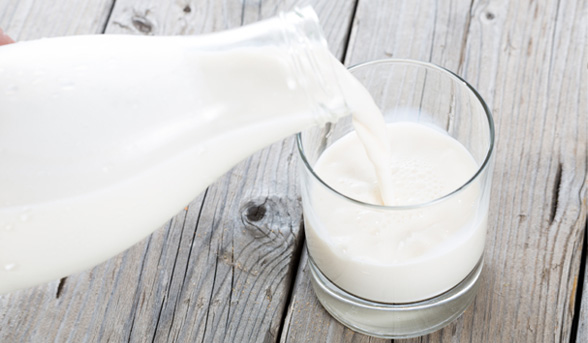Myths are defined as stories or ideas that are believed by many despite their inaccuracy. It’s often unclear how they originate, however, once they’re embedded into our memory banks, they’re very hard to shift.
This is precisely why we’re debunking common food myths that could be derailing your diet. Yes, false facts may be ruining your chances of maintaining a healthy, nutrient-rich eating plan…
5 COMMON FOOD MYTHS
#1. Eggs are really bad for your health.
“Eggs contain cholesterol and cholesterol is often demonised,” explains Jan McLeod, nutritionist, health coach and founder ofMad For Health. However, our bodies actually require cholesterol to perform certain functions. “While the body makes all the cholesterol it needs in the liver, in most cases the liver will increase or decrease its production of cholesterol based on our dietary intake.” Eggs also have many nutritional benefits. They contain vitamin A and D, B vitamins, iron and zinc as well as magnesium, potassium, selenium and calcium, making them a worthwhile addition to your diet.
#2. Eating larger meals earlier in the day will help you lose weight.
“Research indicates there is no correlation between weight gain and weight loss based on the time of day that you eat,” reveals Jan. Instead, eating three nutrient main meals each day will help promote even energy levels, optimum cognitive function and limit cravings for high-sugar foods. Combine this with organised exercise and daily incidental activity and you’ll be able to maintain a healthy weight range.
#3. Our bodies can’t digest nutrients from dairy products.
Dairy is a fantastic source of calcium and prebiotics, which are required for optimal gut health. Yes, some people lack or have lower levels of lactase – the enzyme required for digesting lactose in dairy products – but research indicates that a majority of people with low lactase levels can still consume at least one cup of milk each day, explains Jan. However, if you do choose to consume non-dairy milk because you don’t believe it agrees with your body, Jan suggests selecting a non-sweetened milk with at least 100mg of calcium.
#4. We are all gluten intolerant.
For those with Coeliac Disease, removing gluten from the diet is imperative. But for the rest of us? Not so much. People often think their gut issues are related to a gluten intolerance, however, this discomfort often comes down to poor general gut health instead. “Seventy per cent of your immunity resides within your gut,” says Jan. Increased stress and lack of sleep can all interfere with digestion, leading to poor nutrient absorption. Jan suggests taking steps to effectively manage stress before blaming gluten for stomach issues and removing it from your diet.
#5. If it’s not a superfood, it’s not worth eating.
The term superfood is often taken out of context. It was created to highlight and distinguish the many health benefits of particular foods, and the benefits of including them in your diet. However, this has lead some to believe that non-superfoods are simply not worth consuming. “There are many foods not labelled as superfoods that are nutritious and important in a balanced and varied diet,” explains Jan. “We also need to remember there is no one food that contains all of the nutrients the body needs.” This means restricting certain foods in your diet can lead to nutrient imbalance, whether it’s labelled a superfood or not.
Did you believe any of these food myths? Do you have any food myths to share?





silly haha